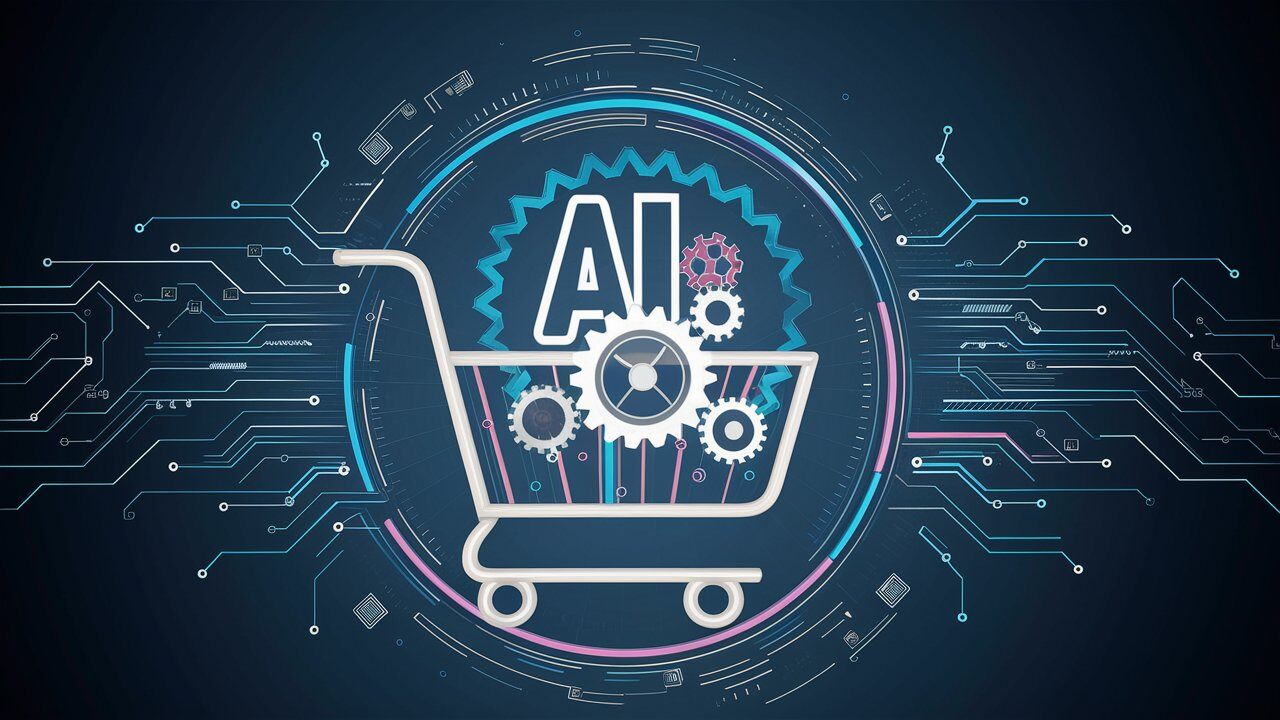
The retail industry is undergoing a significant transformation, driven by the integration of Large Language Models (LLMs) and Artificial Intelligence (AI). These technologies are reshaping how retailers operate, interact with customers, and make strategic decisions. Let's explore the key applications and their impact on the retail landscape.
- Personalized Shopping Experiences
LLMs and AI are revolutionizing customer interactions by providing highly personalized experiences. By analyzing user data, including browsing habits and purchase history, these systems offer tailored product recommendations. This not only enhances customer satisfaction but also drives sales growth. Virtual shopping assistants powered by LLMs can engage in natural conversations, helping customers find products, compare options, and answer questions, creating a more interactive and efficient shopping experience.
- Inventory and Demand Management
One of the most impactful applications of AI in retail is in inventory management and demand forecasting. By leveraging extensive datasets and advanced algorithms, retailers can predict product demand with unprecedented accuracy. This enables businesses to maintain optimal stock levels, reduce waste, and fine-tune their supply chains, resulting in significant cost savings and improved customer satisfaction.
- Content Creation and Marketing
Generative AI is transforming how retailers approach content creation and marketing. These technologies can automate the production of compelling product descriptions, marketing materials, and social media content. LLMs can generate localized content, improving search engine optimization (SEO) efforts and helping retailers resonate with specific regional audiences. This not only saves time and resources but also enhances brand presence across various platforms.
- Visual Search and Augmented Reality
AI-powered visual search capabilities and augmented reality (AR) features are creating innovative ways for customers to explore products. Virtual try-on solutions allow customers to visualize how clothing, accessories, or makeup would look on them before making a purchase. These technologies not only increase engagement but also reduce return rates by enabling more informed purchasing decisions.
- Customer Support and Sentiment Analysis
LLMs have significantly improved customer support through advanced chatbots that can understand and respond to human inquiries efficiently. These AI-powered systems provide 24/7 assistance, reducing wait times and improving overall customer service. Additionally, Natural Language Processing (NLP) techniques allow retailers to analyze customer feedback across various platforms, providing insights into public perception and areas for service improvement.
- Dynamic Pricing and Market Analysis
AI enables retailers to implement dynamic pricing models by analyzing market dynamics and consumer behavior. This allows for flexible pricing strategies that can enhance revenue while remaining competitive. Furthermore, AI-driven market analysis can identify emerging trends and shifts in consumer preferences, helping retailers make informed strategic decisions and maintain a competitive edge.
- Sustainable Practices and Ethical Sourcing
As consumers become more conscious of sustainability, AI is playing a crucial role in helping retailers make responsible business decisions. By analyzing supplier data and market trends, AI can provide insights into sustainable practices and ethical sourcing, allowing retailers to align their operations with consumer values and regulatory standards.
- Employee Training and Store Optimization
LLMs are being used to create customized training programs for retail staff, adapting content based on individual performance and learning pace. This leads to more efficient onboarding and continuous professional development. Additionally, AI can analyze customer movement within physical stores to suggest layout changes that improve navigation and overall shopping experience.
- Automated A/B Testing and Decision Making
AI streamlines the process of A/B testing in digital platforms, quickly identifying the most effective marketing strategies, website designs, and customer engagement tactics. This data-driven approach enables retailers to make more informed decisions and continuously optimize their operations.
Conclusion
The integration of Large Language Models and AI in retail is not just a trend but a fundamental shift in how the industry operates. From personalized customer experiences to optimized backend operations, these technologies are driving efficiency, innovation, and growth. As the retail landscape continues to evolve, businesses that effectively leverage LLMs and AI will be better positioned to meet changing consumer expectations and thrive in an increasingly competitive market.
To successfully implement these technologies, retailers must focus on building a strong data foundation and partnering with experienced technology providers. By embracing the power of LLMs and AI, retailers can transform challenges into opportunities and create more engaging, efficient, and profitable businesses in the digital age.
Facilitating AI Integration with Pacific Data Integrators (PDI)
Integrating Generative AI and Large Language Models (LLMs) into retail can seem daunting, but with Pacific Data Integrators (PDI), it becomes a streamlined and supported journey. Partnering with PDI ensures a seamless transition and enduring success, turning challenges into opportunities. Discover how PDI's tailored retail solutions can transform your business by consulting with our experts today.
You can book a consultation today by visiting us at PDI.

Posted by PDI Marketing Team
Pacific Data Integrators Offers Unique Data Solutions Leveraging AI/ML, Large Language Models (Open AI: GPT-4, Meta: Llama2, Databricks: Dolly), Cloud, Data Management and Analytics Technologies, Helping Leading Organizations Solve Their Critical Business Challenges, Drive Data Driven Insights, Improve Decision-Making, and Achieve Business Objectives.




